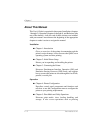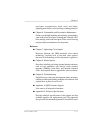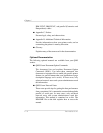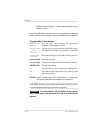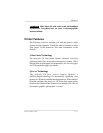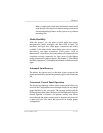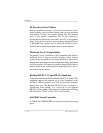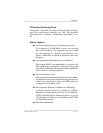
throughput. (Each input buffer can be expanded with
optional memory.)
■ Emulation Sensing Processor Technology
When in ESP mode (selectable through PS Executive
Series Utilities or the control panel), the printer analyzes
incoming data and selects the appropriate printer language
from those available, so users don’t have to set switches or
send commands to use different printer emulations. ESP
mode works with most popular commercially available
applications.
■ Context Switching
After initial use, the state of an emulation and downloaded
data (fonts, macros, overlays) is preserved for as long as
the printer power is on, so repetitive downloading is
unnecessary.
■ Compile-ahead Processing
Pages are compiled into intermediate, compressed blocks
of data that can be immediately and more easily rasterized
or more efficiently stored for concurrent compiling,
rasterizing, and printing. This allows the printer to
maintain full print speed under maximum job activity.
■ User-configurable Input Buffers
Printer memory can be configured to enable the most
efficient spooling for a particular environment. Chapter 4,
“Printer Configuration,” contains more information on
printer memory.
■ Spooling Overflow
Data is spooled transparently to the internal hard disk, so
input buffers aren’t limited to RAM capacity.
■ Compressed Data Format
Chapter 1
1-10 Introduction



